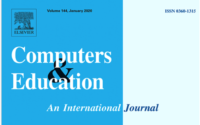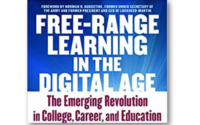
How College Students’ Achievement Goal Orientations Predict Their Expected Online Learning Outcome: The Mediation Roles of Self-Regulated Learning Strategies and Supportive Online Learning Behaviors
The purpose of this study was to examine the underlying mechanism between goal orientations and academic expectation for online learners. We simultaneously studied the structural relationships among 2×2 achievement goal orientations, self-regulated learning strategies (SRL), supportive online learning behaviors, and expected academic outcome in various online courses with 93 respondents (70 undergraduate and 23 graduate […]
















